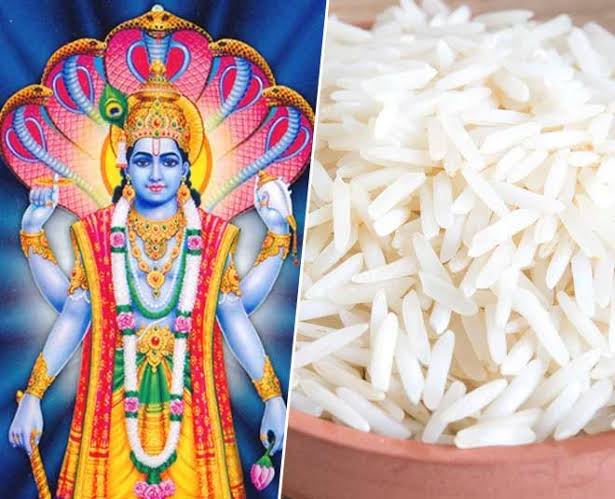Ekadashi is a holy day in the Hindu calendar that is observed on the eleventh day of the waxing and waning lunar fortnights. It is a day of fasting Not Eat Rice on Ekadashi and spiritual introspection and is dedicated to the worship of Vishnu, the Hindu god of preservation.

Not Eat Rice on Ekadashi
The word “ekadashi” literally means “eleventh” in Sanskrit. It is believed that fasting on Ekadashi can help to cleanse the body and mind, and to increase spiritual awareness. There are many different types of Ekadashi fasts. And the specific rules vary depending on the sect of Hinduism that one follows. However, some common practices include abstaining from eating grains, legumes, and certain types of vegetables.
Ekadashi is also a time for charitable giving and community service. Many people donate food, clothing, and other items to those in need on this day.
The significance of Ekadashi is rooted in Hindu mythology. According to one story, a demon named Hayagriva stole the Vedas, the sacred texts of Hinduism. Vishnu took on the form of a tortoise and defeated the demon, and then restored the Vedas to the world. Ekadashi is said to commemorate this event.
Ekadashi is a popular holiday in many parts of India. And it is also celebrated by Hindus in other countries around the world. It is a day of spiritual renewal and community bonding. And it is a time to reflect on the importance of self-discipline and compassion.
Here are some of the benefits of fasting on Ekadashi:
- Improved digestion: Fasting on Ekadashi can help to improve digestion by giving the digestive system a rest.
- Reduced stress: Fasting can help to reduce stress by clearing the mind and calming the body.
- Increased energy: Fasting can help to increase energy levels by allowing the body to burn stored fat for fuel.
- Improved focus: Fasting can help to improve focus and concentration by clearing the mind of distractions.
- Spiritual benefits: Fasting on Ekadashi is believed to have a number of spiritual benefits. Such as increasing spiritual awareness, cleansing the body and mind, and breaking bad karma.
If you are considering fasting on Ekadashi. It is important to do your research and find out what foods are allowed and not allowed. You should also consult with your doctor if you have any health concerns.
There are two main reasons why people avoid eating rice on Ekadashi.
- Religious reasons: According to Hindu mythology, rice is considered to be the food of the gods. Eating rice on Ekadashi is believed to offend the gods and lead to bad karma. There is also a story that says that a demon once took shelter in a grain of rice. And so eating rice on Ekadashi is believed to invite the demon into your body.
- Scientific reasons: Rice is a water-heavy food. And it is believed that eating rice on Ekadashi can disrupt the body’s natural detox process. The moon’s gravitational pull is said to be strongest on Ekadashi, and this can affect the body’s water balance. Eating rice on this day can therefore lead to bloating, water retention, and other digestive problems.
Of course, these are just beliefs, and there is no scientific evidence to support them. Ultimately, whether or not you choose to eat rice on Ekadashi is a personal decision.
Here are some other foods that are generally avoided on Ekadashi:
- Pulses: Lentils, beans, and peas are all considered to be heavy foods that can disrupt the body’s detox process.
- Onion and garlic: These two vegetables are believed to have a heating effect on the body. Which can make it difficult to focus on spiritual matters.
- Animal products: Meat, fish, and eggs are not allowed on Ekadashi because they are considered to be tamasic foods. Which can cloud the mind.
There are a number of other foods that are allowed on Ekadashi. Such as fruits, vegetables, nuts, seeds, and milk products. You can also make a variety of dishes using these ingredients, such as khichdi, upma, and poha.
If you are planning to fast on Ekadashi. It is important to do your research and find out what foods are allowed and not allowed. You should also consult with your doctor if you have any health concerns.

